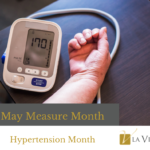- Home
- Locations
- For Individuals
- For Organizations
- CEO Health/Executive Assessment
- Independent Medical Assessments
- Employee Health
- Functional Abilities Evaluation Services
- Functional Medicine Evaluation (FME) Services
- Independent Medical Evaluation (IME) Services
- Job Site Assessment Services
- Labour Market Re-entry Assessment Service
- Neuropsychological Assessment Services
- Non-Medical Summary Services
- Physical Demands Analysis (PDA) Services
- Pre-Employment Medical Services
- Vocational and Employability Assessment Service
- For Diplomats
- About
- Contact
- Home
- Locations
- For Individuals
- For Organizations
- CEO Health/Executive Assessment
- Independent Medical Assessments
- Employee Health
- Functional Abilities Evaluation Services
- Functional Medicine Evaluation (FME) Services
- Independent Medical Evaluation (IME) Services
- Job Site Assessment Services
- Labour Market Re-entry Assessment Service
- Neuropsychological Assessment Services
- Non-Medical Summary Services
- Physical Demands Analysis (PDA) Services
- Pre-Employment Medical Services
- Vocational and Employability Assessment Service
- For Diplomats
- About
- Contact
- Home
- Locations
- For Individuals
- For Organizations
- CEO Health/Executive Assessment
- Independent Medical Assessments
- Employee Health
- Functional Abilities Evaluation Services
- Functional Medicine Evaluation (FME) Services
- Independent Medical Evaluation (IME) Services
- Job Site Assessment Services
- Labour Market Re-entry Assessment Service
- Neuropsychological Assessment Services
- Non-Medical Summary Services
- Physical Demands Analysis (PDA) Services
- Pre-Employment Medical Services
- Vocational and Employability Assessment Service
- For Diplomats
- About
- Contact
- Home
- Locations
- For Individuals
- For Organizations
- CEO Health/Executive Assessment
- Independent Medical Assessments
- Employee Health
- Functional Abilities Evaluation Services
- Functional Medicine Evaluation (FME) Services
- Independent Medical Evaluation (IME) Services
- Job Site Assessment Services
- Labour Market Re-entry Assessment Service
- Neuropsychological Assessment Services
- Non-Medical Summary Services
- Physical Demands Analysis (PDA) Services
- Pre-Employment Medical Services
- Vocational and Employability Assessment Service
- For Diplomats
- About
- Contact
7 Signs of Bladder Cancer That You Shouldn’t Ignore

Seasonal Allergies
April 16, 2021
6 Common Myths About Hypertension and the Truth Behind Them
May 17, 2021Bladder cancer is the most expensive cancer to treat, and it has a reputation for being a silent killer. As with most cancers, awareness and early detection are critical in saving lives. According to Bladder Cancer Canada, about 120,000 people will be diagnosed with bladder cancer this year alone. That being said, it is a deadly disease that everyone should watch out for.
In support of Bladder Cancer Awareness Month, here are 7 signs of bladder cancer that you shouldn’t ignore.
Blood or blood clots in your urine
The most common symptom of bladder cancer is blood in the urine, also known as ‘hematuria’. Although blood in the urine can be a sign of several other symptoms that are not cancer, it’s still important to talk to your doctor if you see blood in your urine. Oh, and by the way, it doesn’t always have to be red in color, sometimes it looks like the color of cola.
You often feel the need to urinate, but when you’re there, sometimes very little urine comes out
If you frequently feel the need to urinate or you’re making frequent trips to the bathroom every night, you might think that you have a urinary tract infection (UTI). But if you’re over the age of 55, then these may already be signs of bladder cancer.
There’s pain and burning sensation during urination
The symptom of pain or burning during urination is called dysuria. While this can be an indicator for other conditions, it’s still important to pay attention to changes happening in your urinary system. One important thing to take note of is that patients with bladder cancer can experience the symptom of blood in the urine without pain or burning during urination.
You feel pain in your pelvis or lower back
This can be a symptom of other common conditions. However, pain in the pelvis or lower back can be an indicator of advanced bladder cancer—this happens when cancer has already spread to another part of the body. If you’re experiencing this together with other bladder cancer symptoms, you must talk to your doctor immediately.
You experience recurrent UTIs
Bladder cancer can often be mistaken for UTI. However, if you’ve gone through medication and the symptoms persist after you’ve finished treatment—it could be bladder cancer.
You feel weak or fatigued
Feeling tired after a long workday is normal. Usually, we just need to get adequate rest, and we’re back to normal. However, a progressing bladder cancer can cause a different type of fatigue—it’s something that no matter how long you rest, there’s no improvement, and you just don’t have enough energy to get through the day.
You lose appetite, and you lose weight unintentionally
Loss of appetite is one of the main side effects of cancer, primarily because it can change your metabolism. Like the others mentioned earlier, this symptom can be an indication for other conditions, but it is something that you shouldn’t ignore.
Again, as with most cancers and other deadly diseases, early detection is critical in saving lives. So, if you or anyone you know has experienced these symptoms, don’t hesitate to book an appointment by calling our office at (613) 592-0862.





